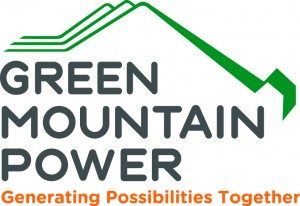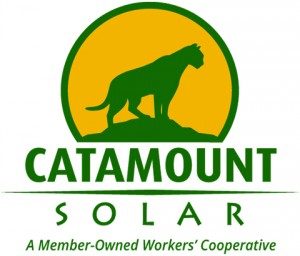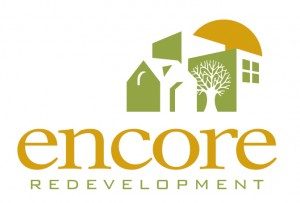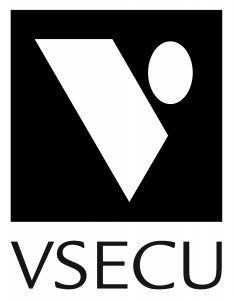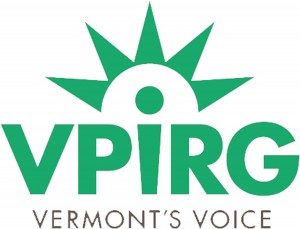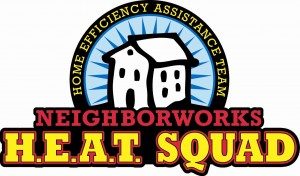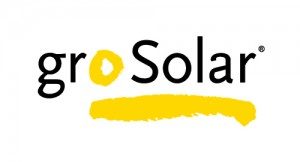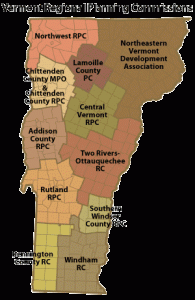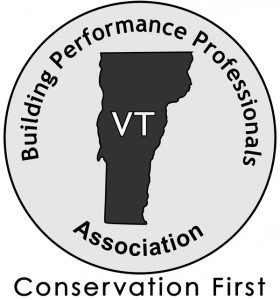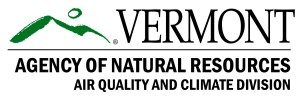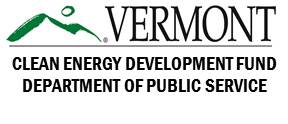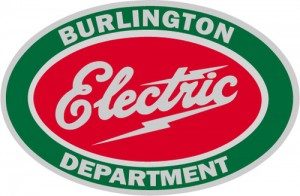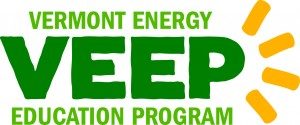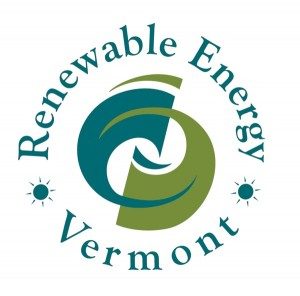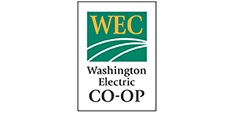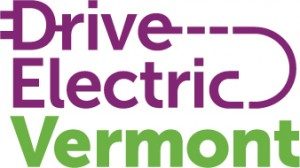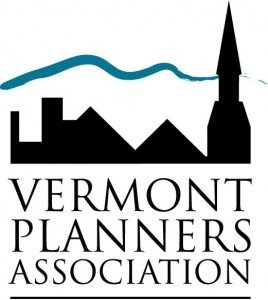7th Annual VECAN Conference 2014
Shaping Vermont’s Response to Climate Change
Workshops A
A1 Making a Compelling Case for Climate Action and Clean Energy
We know how important our work is to people’s pocketbooks, the planet and future generations. How can we more effectively tell the stories that will motivate more people to care – and take action? This workshop will overview specific communications, media, and marketing strategies that work. It will focus on message discipline around specific topics and hone attendees’ skills on utilizing traditional and social media, as well as overview the art of effective storytelling.
Abby White, Vermont Energy Investment Corporation
Ben Walsh, Vermont Public Interest Research Group
A2 Tools and Tips to Help Advance Community Solar
There are tremendous resources now available to help Vermonters and Vermont communities seize the timely opportunity to go solar. There are also strategies that can be used to ensure that solar doesn’t divide communities but, instead, supports multiple local goals. Find out about a suite of resources now available, including model solar contracts for schools, municipalities and community solar projects, as well as guidance on best planning practices and public engagement strategies to build greater support for solar.
Ethan McLaughlin, Gravel and Shea
Johanna Miller, Vermont Natural Resources Council
Anne Margolis, Public Service Department
A3 How Might Vermont Get to 90 Percent by 2050? The Results Are In…
Developing a clean energy roadmap to meet Vermont’s necessarily ambitious renewable energy and climate change goals is the intent of the state’s recently released “Total Energy Study.” Get an overview of the findings of the Public Service Department’s robust energy and economic analysis, hear how you – or your community – might use this analysis to shape your local efforts and help Vermont craft the most strategic, action-oriented “Comprehensive Energy Plan” in 2015.
Asa Hopkins, Vermont Public Service Department
Chris Granda, Energy Consultant and Richmond Energy Committee member
George Twigg, Vermont Energy Investment Corporation
A4 How Can Efficiency Vermont Better Serve Vermonters?
Efficiency Vermont is developing its three-year plan for 2015-2017. Come share your ideas, thoughts, and inspirations on which Efficiency Vermont programs are working well and which ones need improvement, what their top priorities should be and how they can better engage communities and serve all Vermonters.
Paul Markowitz, Efficiency Vermont
Jim Merriam, Efficiency Vermont
A5 Aligning Local, Regional and State Planning to Meet Vermont’s Energy Goals
Vermont has necessarily ambitious renewable energy and greenhouse gas reduction goals. But ensuring Vermont’s state policy goals are as strategically aligned as possible with local and regional priorities is important. In this workshop, hear how local and regional plans do – or do not – support the state’s vision today. Learn about some efforts afoot to support a more coordinated energy transition in Vermont. And join a conversation about how communities can help ensure the energy transition happens swiftly, smartly and respectfully.
Jim Sullivan, Bennington County Regional Commission
Tarah Rowse, PhD, University of Vermont Rubenstein School of Environment and Natural Resources
Andi Colnes, Energy Action Network
A6 Smart Choices: Advancing Transportation Efficiency in Rural Communities
As many Vermonters struggle to pay their bills, the job of improving access to more efficient, affordable transportation is more critical than ever. This interactive workshop will highlight the role of businesses, partners and energy committees making a difference in their communities.
Aaron Brown, Vital Communities
Neil Morrissette, Newport City Councilor, Creative Workforce Solutions
Tim Shea, National Life Group
Ross MacDonald, Go Vermont Program
A7 Moving Toward Zero Waste
Much of what could be recycled or composted is still ending up in the landfill. Learn about Vermont’s Universal Recycling Law (Act 148) and how you or your energy committee can reduce carbon emissions by increasing the collection of food scraps for composting, capturing a broader portion of the waste stream for recycling and reducing waste production. Hear about local waste reduction initiatives and how you might embrace this initiative to help meet your climate change goals.
Josh Kelley, Vermont Agency of Natural Resources
Leesa Stewart, Central Vermont Solid Waste Management District
Workshops B
B1 Building a Bigger Grassroots Movement for Bold Climate Action
“To change everything, we need everyone…” The climate crisis will take all hands on deck to turn the challenges we face into opportunity. It will also take skill, strategy and effective engagement of all Vermonters. This workshop will focus on the latest climate science, honing your organizing skills and exciting efforts to align diverse interests toward shared, bold climate and energy goals.
Johanna Miller, Vermont Natural Resources Council
Liz Edsell, Vermont Public Interest Research Group
Brittany Dunn, 350VT
B2 Town Energy Committees: Strategies, Stories and Tips for Success
Vermont’s town energy committees are implementing critical clean energy solutions at the local level. This workshop will provide guidance on starting and running an effective committee, as well as tips for advancing successful energy projects. Energy committee representatives will share their experiences and key lessons. Attendees will gain strategies for engaging and strengthening their grassroots network.
Suzy Hodgson, Charlotte Energy Committee
Peter LaBelle, Cavendish Energy Committee
Amelia Fritz, Craftsbury Energy Committee
Tarah Rowse, PhD, University of Vermont Rubenstein School of Environment and Natural Resources
B3 Creative, Community-Led Residential Solar Campaigns
Waterbury LEAP and Vital Communities have had great success at increasing on-site residential solar. Vital Communities has helped several Upper Valley energy committees reduce costs and double or triple the amount of residential on-site solar capacity in their towns in just four months through their Solarize initiative. Using creative outreach efforts, Waterbury LEAP helped quadruple total solar capacity in Waterbury/Duxbury over two years. Come learn from these experienced organizers how you too can increase the amount of residential on-site solar in your town.
Duncan McDougall, Waterbury Local Energy Action Partnership
Sarah Simonds, Vital Communities
Bob Walker, Thetford Energy Committee & SERG
B4 The Legislative Landscape for 2015
It’s increasingly clear that what happens at the local level is helped – or hindered – by state policies. This workshop will provide an overview of likely energy initiatives in the 2015 Vermont legislative session. Among several topics, get an overview of the effort underway to advance an innovative “Renewable Portfolio Standard” that could incorporate thermal efficiency solutions, as well as other pathways examined by the state to help us achieve our clean energy goals, including the possibility of putting a price on carbon pollution.
Darren Springer, Public Service Department
Senator Mark McDonald, Natural Resources and Energy and Finance Committees
Lauren Hierl, Vermont Conservation Voters
Ben Walsh, Vermont Public Interest Research Group
B5 Planning for Climate Resiliency at the Local Level
Communities nationwide are developing integrated, long-term plans to prepare for and respond to future climate impacts and natural disasters. Come learn specific strategies that communities can implement to prepare for the impacts of climate change and how local energy committees can help strengthen community resilience.
Peg Elmer, Community-Reslience.org
Sarah McKearnan, Vermont Agency of Natural Resources
Representative Rebecca Ellis, Town of Waterbury
B6 The Path to Zero Energy Homes
Come learn about Zero Energy Homes and how deep efficiency investments, improvements to heating systems and renewable energy can be utilized to move existing homes toward net zero. Further, learn about Green Mountain Power’s “eHome Initiative” in Rutland City and tangible results from this innovative program.
Li Ling Young, Efficiency Vermont
Craig Ferreira, Green Mountain Power
B7 The Future Transportation System: Putting Policy into Action!
Let’s talk about the elephant in the room! With transportation as our biggest greenhouse gas emitting sector, what is Vermont’s plan to realign our car-dependent culture, and how can energy committees and communities help tackle this issue and turn good policies into actions?
Chris Cole, Vermont Agency of Transportation Deputy Secretary
Representative Diane Lanpher, House Transportation Committee
David Roberts, Vermont Energy Investment Corporation
Back to Top
Workshops C
C1 Setting Priorities for Maximum Impact
Wish you or your energy committee could make more of an impact in your community? You can! This workshop makes the case that busy people and energy committees can be more successful by taking the time to think strategically and prioritize their efforts. In this workshop, learn about a set of tools that can help energy committees quickly and strategically identify priorities and hit the ground running. Just a little bit of planning can make all the difference…
Linda Darveau, U.S. Environmental Protection Agency
Sarah Simonds, Vital Communities
C2 NextGen: Working With Youth Leaders
The next generation of Vermonters has a lot at stake in the climate and energy equation. This workshop highlights several innovative energy-related projects involving youth. Find out what’s happening in schools and communities across Vermont, and explore how you or your energy committee might work more closely with younger Vermonters.
Mike Auerbach, Brattleboro Union High School
Cara Robechek, Vermont Energy Education Program
Kathryn Blume, Vermontivate!
C3 An Array of Community Solar Solutions
There are a plethora of potential partners in Vermont who are offering community solar solutions. In this session, solar providers will provide a brief overview of the programs they offer that might be of interest to energy committees, municipalities or anyone who wants to go solar – including individuals who rent their homes or might not have solar access on their house or land.
Vermont solar partners will offer a brief overview of their solar solutions. Find out what might work for you – or your community – before the federal investment tax credit evaporates or is drastically reduced in 2017.
C4 Volunteer-Assisted Weatherization: Engagement, Education and Results
Trained volunteers can help town residents save energy and money by installing weatherization measures in homes. Come hear how COVER Home Repair, Upper Valley Habitat for Humanity and the Thetford Energy Committee have trained volunteers to install weatherization measures on low-income homes, which significantly reduced home energy use and spending. Also, learn how this model might work in your community.
Rob Schultz, COVER Home Repair
Tim McCosker, Upper Valley Habitat for Humanity
Bob Walker, Thetford Energy Committee
C5 Innovative Financing Solutions for Municipal and School Energy Improvements
Making efficiency and renewable energy investments possible for cash-strapped municipalities and schools isn’t always easy. But there are long-established – and some creative new – financing mechanisms available to help make it easier and more affordable for Vermont municipalities to retrofit leaky buildings and transition to clean, renewable power. This workshop will provide an overview of several opportunities to finance efficiency and renewable improvements, including municipal leasing and a new Public Purpose Energy Service Company model.
Logan Brown, Commons Energy
Don Cummings, South Burlington Energy Committee
Renee M. Piché, Municipal Leasing Consultants
C6 Toward Net Zero Communities
A Net Zero Community is a community that meets all of its energy needs through deep efficiency improvements and locally available renewable energy resources. Come learn about key issues surrounding the move toward net zero communities, community efforts nationwide, planning and modeling tools available and how your community can start on the path toward net zero.
Andrea Colnes, Energy Action Network
Tim Shea, Montpelier Energy Advisory Committee
Paul Markowitz, Efficiency Vermont
C7 Fuel, Food and Other Uses for Agricultural and Forest Land
In this session, hear about issues related to food, forests, fuel and energy. How does Vermont balance potentially competing interests for the use of our limited and valuable land and forest resources? What are the important questions and goals communities must consider and address? What role(s) can local leaders play in shaping these conversations? Our panelists will overview some interesting projects underway and some opportunities communities might want to consider.
Alex DePillis, Vermont Agency of Agriculture, Food and Markets
Joshua Faulkner, Center for Sustainable Agriculture
Adam Sherman, Biomass Energy Resource Center
Back to Top
Keynote
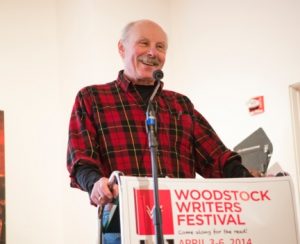 James Howard Kunstler is an author of 18 books and popular public speaker. His work includes The Geography of Nowhere, The City in Mind, The Long Emergency, Too Much Magic, and the World Made By Hand novel series, set in the post-oil American future. His work has evolved from a focus on the fiasco of suburban sprawl to the greater predicaments of industrial society: climate change, peak oil, eco- destruction, and the failing global financial system. He has been intimately involved with the New Urbanism movement’s campaign for walkable communities and public transit. His recent work offers a roadmap to downscaled and re-localized economies, with an emphasis on re-building the human habitat.
James Howard Kunstler is an author of 18 books and popular public speaker. His work includes The Geography of Nowhere, The City in Mind, The Long Emergency, Too Much Magic, and the World Made By Hand novel series, set in the post-oil American future. His work has evolved from a focus on the fiasco of suburban sprawl to the greater predicaments of industrial society: climate change, peak oil, eco- destruction, and the failing global financial system. He has been intimately involved with the New Urbanism movement’s campaign for walkable communities and public transit. His recent work offers a roadmap to downscaled and re-localized economies, with an emphasis on re-building the human habitat.
Jim Kunstler has lectured at Harvard, Yale, Princeton, Columbia, Dartmouth, Cornell, MIT, and many other colleges, and he has appeared before many professional organizations such as the American Institute of Architects, the American Planning Association and the National Trust for Historic Preservation.
He graduated from the State University of New York, worked as a reporter and feature writer for a number of newspapers, and finally as a staff writer for Rolling Stone Magazine. He lives in Washington County New York, a few miles from the Vermont state line.
Back to Top
Community Energy Awards
Best Project – Net-Zero Montpelier
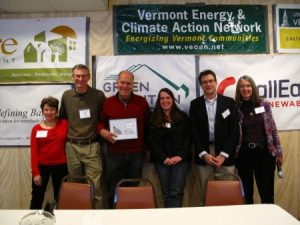 The Net-Zero Montpelier initiative is transforming the Capital’s energy system, moving toward a secure, affordable, and sustainable energy future. Spearheaded by the Montpelier Energy Advisory Committee, this bold initiative seeks to eliminate and offset fossil fuel energy use wherever possible. A holistic approach has been key to the project’s success thus far, leaving no stone unturned in digging up solutions. Work is well underway to reach a goal of 1,000 weatherized homes, and plans for two large municipal solar installations are in the final stages. The project’s most significant achievement to date is its contribution to District Heat Montpelier: a local biomass heat plant that will serve the capitol complex, city buildings, schools and private buildings downtown. The plant will reduce emissions by over 10 tons and replace 300,000 gallons of fuel annually and will stabilize fuel cost for the district.
The Net-Zero Montpelier initiative is transforming the Capital’s energy system, moving toward a secure, affordable, and sustainable energy future. Spearheaded by the Montpelier Energy Advisory Committee, this bold initiative seeks to eliminate and offset fossil fuel energy use wherever possible. A holistic approach has been key to the project’s success thus far, leaving no stone unturned in digging up solutions. Work is well underway to reach a goal of 1,000 weatherized homes, and plans for two large municipal solar installations are in the final stages. The project’s most significant achievement to date is its contribution to District Heat Montpelier: a local biomass heat plant that will serve the capitol complex, city buildings, schools and private buildings downtown. The plant will reduce emissions by over 10 tons and replace 300,000 gallons of fuel annually and will stabilize fuel cost for the district.
Best Overall Energy Committee – South Burlington
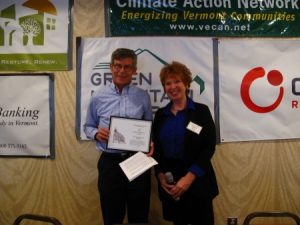 The South Burlington Energy Committee has a strong history of organized efforts, ranging from Button Up workshops and LED Streetlight upgrades to solar installations and lighting efficiency campaigns. Currently, they are engaged in an exciting and ambitious process: competing for the prestigious Georgetown University Energy Prize. South Burlington is currently in the running to be chosen as a semifinalist in this energy-saving competition – with a $5 million prize. The work required to participate thus far has been extensive, and the committee is determined to push onward with their plan to significantly cut energy consumption and implement efficient, renewable alternatives to fossil fuels. Their drive and focus is an inspiration, leading the way toward a clean and efficient future for Vermont.
The South Burlington Energy Committee has a strong history of organized efforts, ranging from Button Up workshops and LED Streetlight upgrades to solar installations and lighting efficiency campaigns. Currently, they are engaged in an exciting and ambitious process: competing for the prestigious Georgetown University Energy Prize. South Burlington is currently in the running to be chosen as a semifinalist in this energy-saving competition – with a $5 million prize. The work required to participate thus far has been extensive, and the committee is determined to push onward with their plan to significantly cut energy consumption and implement efficient, renewable alternatives to fossil fuels. Their drive and focus is an inspiration, leading the way toward a clean and efficient future for Vermont.
Individual Energy Leadership – Duncan McDougall
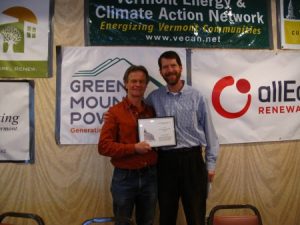 When Duncan McDougall founded Waterbury LEAP in 2007, he began to redefine what is possible for grassroots energy action in Vermont. Under his leadership, LEAP has achieved great success in an ever-expanding range of programs. The committee – now a registered nonprofit organization – has conducted two “Waterbury/Duxbury Solar Year” campaigns, effectively quadrupling the local solar capacity. LEAP’s many volunteer members also host an annual “LEAP Energy Fair” drawing 75 exhibitors and 700 attendees – one of the largest energy events in the state. As Chair, Duncanhas continued to urge his community forward, but his work stretches far beyond. He has met with committees across Vermont, and is endlessly available to support the growth and sustainability of energy and climate action groups. With Duncan’s expertise and Waterbury LEAP as a model, the momentum keeps rolling!
When Duncan McDougall founded Waterbury LEAP in 2007, he began to redefine what is possible for grassroots energy action in Vermont. Under his leadership, LEAP has achieved great success in an ever-expanding range of programs. The committee – now a registered nonprofit organization – has conducted two “Waterbury/Duxbury Solar Year” campaigns, effectively quadrupling the local solar capacity. LEAP’s many volunteer members also host an annual “LEAP Energy Fair” drawing 75 exhibitors and 700 attendees – one of the largest energy events in the state. As Chair, Duncanhas continued to urge his community forward, but his work stretches far beyond. He has met with committees across Vermont, and is endlessly available to support the growth and sustainability of energy and climate action groups. With Duncan’s expertise and Waterbury LEAP as a model, the momentum keeps rolling!
Back to Top
Thank You To Our Fantastic Sponsors!
Special thanks to our Keynote Sponsor:
Back to Top

 James Howard Kunstler is an author of 18 books and popular public speaker. His work includes The Geography of Nowhere, The City in Mind, The Long Emergency, Too Much Magic, and the World Made By Hand novel series, set in the post-oil American future. His work has evolved from a focus on the fiasco of suburban sprawl to the greater predicaments of industrial society: climate change, peak oil, eco- destruction, and the failing global financial system. He has been intimately involved with the New Urbanism movement’s campaign for walkable communities and public transit. His recent work offers a roadmap to downscaled and re-localized economies, with an emphasis on re-building the human habitat.
James Howard Kunstler is an author of 18 books and popular public speaker. His work includes The Geography of Nowhere, The City in Mind, The Long Emergency, Too Much Magic, and the World Made By Hand novel series, set in the post-oil American future. His work has evolved from a focus on the fiasco of suburban sprawl to the greater predicaments of industrial society: climate change, peak oil, eco- destruction, and the failing global financial system. He has been intimately involved with the New Urbanism movement’s campaign for walkable communities and public transit. His recent work offers a roadmap to downscaled and re-localized economies, with an emphasis on re-building the human habitat. The Net-Zero Montpelier initiative is transforming the Capital’s energy system, moving toward a secure, affordable, and sustainable energy future. Spearheaded by the Montpelier Energy Advisory Committee, this bold initiative seeks to eliminate and offset fossil fuel energy use wherever possible. A holistic approach has been key to the project’s success thus far, leaving no stone unturned in digging up solutions. Work is well underway to reach a goal of 1,000 weatherized homes, and plans for two large municipal solar installations are in the final stages. The project’s most significant achievement to date is its contribution to District Heat Montpelier: a local biomass heat plant that will serve the capitol complex, city buildings, schools and private buildings downtown. The plant will reduce emissions by over 10 tons and replace 300,000 gallons of fuel annually and will stabilize fuel cost for the district.
The Net-Zero Montpelier initiative is transforming the Capital’s energy system, moving toward a secure, affordable, and sustainable energy future. Spearheaded by the Montpelier Energy Advisory Committee, this bold initiative seeks to eliminate and offset fossil fuel energy use wherever possible. A holistic approach has been key to the project’s success thus far, leaving no stone unturned in digging up solutions. Work is well underway to reach a goal of 1,000 weatherized homes, and plans for two large municipal solar installations are in the final stages. The project’s most significant achievement to date is its contribution to District Heat Montpelier: a local biomass heat plant that will serve the capitol complex, city buildings, schools and private buildings downtown. The plant will reduce emissions by over 10 tons and replace 300,000 gallons of fuel annually and will stabilize fuel cost for the district. The South Burlington Energy Committee has a strong history of organized efforts, ranging from Button Up workshops and LED Streetlight upgrades to solar installations and lighting efficiency campaigns. Currently, they are engaged in an exciting and ambitious process: competing for the prestigious Georgetown University Energy Prize. South Burlington is currently in the running to be chosen as a semifinalist in this energy-saving competition – with a $5 million prize. The work required to participate thus far has been extensive, and the committee is determined to push onward with their plan to significantly cut energy consumption and implement efficient, renewable alternatives to fossil fuels. Their drive and focus is an inspiration, leading the way toward a clean and efficient future for Vermont.
The South Burlington Energy Committee has a strong history of organized efforts, ranging from Button Up workshops and LED Streetlight upgrades to solar installations and lighting efficiency campaigns. Currently, they are engaged in an exciting and ambitious process: competing for the prestigious Georgetown University Energy Prize. South Burlington is currently in the running to be chosen as a semifinalist in this energy-saving competition – with a $5 million prize. The work required to participate thus far has been extensive, and the committee is determined to push onward with their plan to significantly cut energy consumption and implement efficient, renewable alternatives to fossil fuels. Their drive and focus is an inspiration, leading the way toward a clean and efficient future for Vermont. When Duncan McDougall founded Waterbury LEAP in 2007, he began to redefine what is possible for grassroots energy action in Vermont. Under his leadership, LEAP has achieved great success in an ever-expanding range of programs. The committee – now a registered nonprofit organization – has conducted two “Waterbury/Duxbury Solar Year” campaigns, effectively quadrupling the local solar capacity. LEAP’s many volunteer members also host an annual “LEAP Energy Fair” drawing 75 exhibitors and 700 attendees – one of the largest energy events in the state. As Chair, Duncanhas continued to urge his community forward, but his work stretches far beyond. He has met with committees across Vermont, and is endlessly available to support the growth and sustainability of energy and climate action groups. With Duncan’s expertise and Waterbury LEAP as a model, the momentum keeps rolling!
When Duncan McDougall founded Waterbury LEAP in 2007, he began to redefine what is possible for grassroots energy action in Vermont. Under his leadership, LEAP has achieved great success in an ever-expanding range of programs. The committee – now a registered nonprofit organization – has conducted two “Waterbury/Duxbury Solar Year” campaigns, effectively quadrupling the local solar capacity. LEAP’s many volunteer members also host an annual “LEAP Energy Fair” drawing 75 exhibitors and 700 attendees – one of the largest energy events in the state. As Chair, Duncanhas continued to urge his community forward, but his work stretches far beyond. He has met with committees across Vermont, and is endlessly available to support the growth and sustainability of energy and climate action groups. With Duncan’s expertise and Waterbury LEAP as a model, the momentum keeps rolling!

